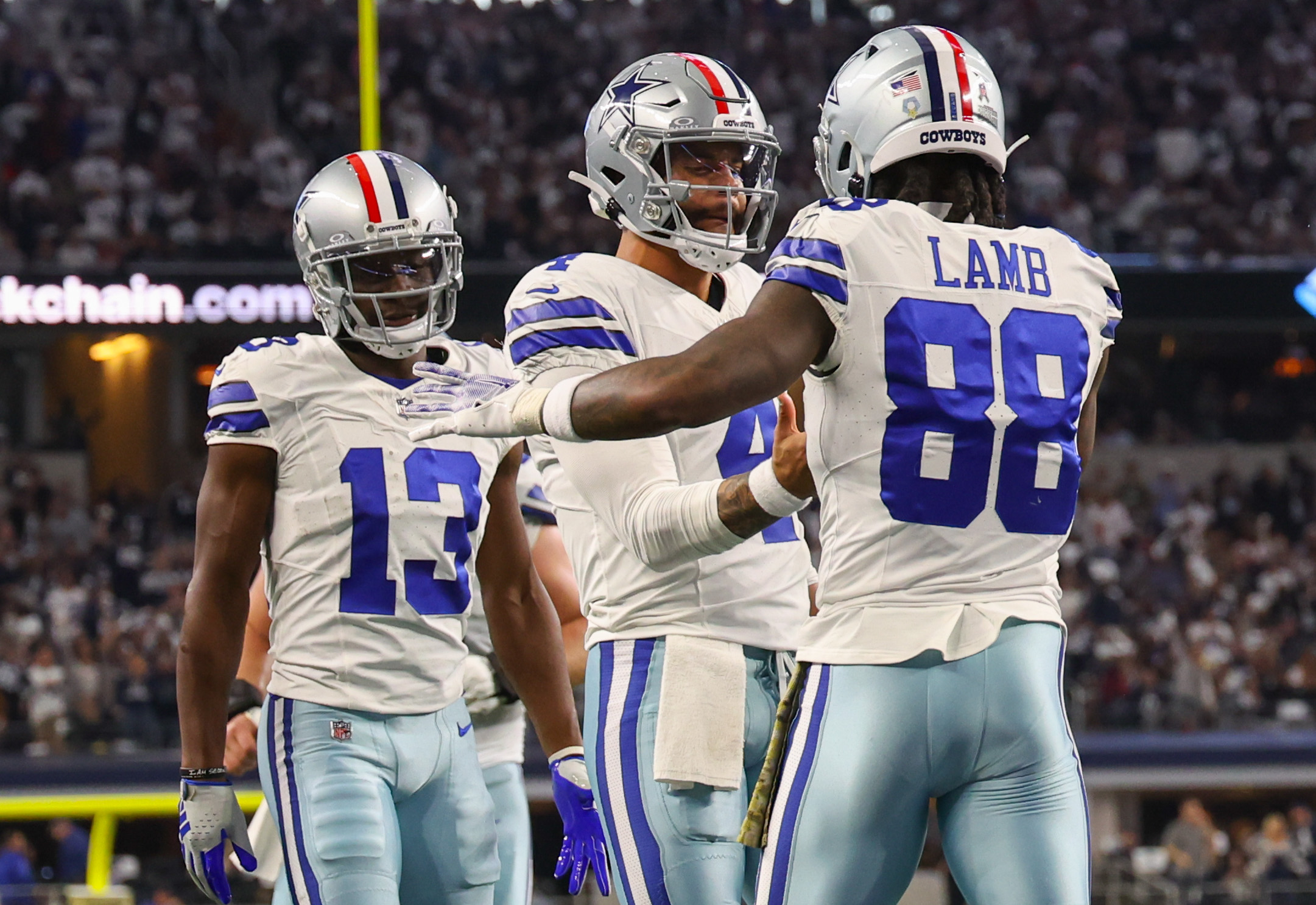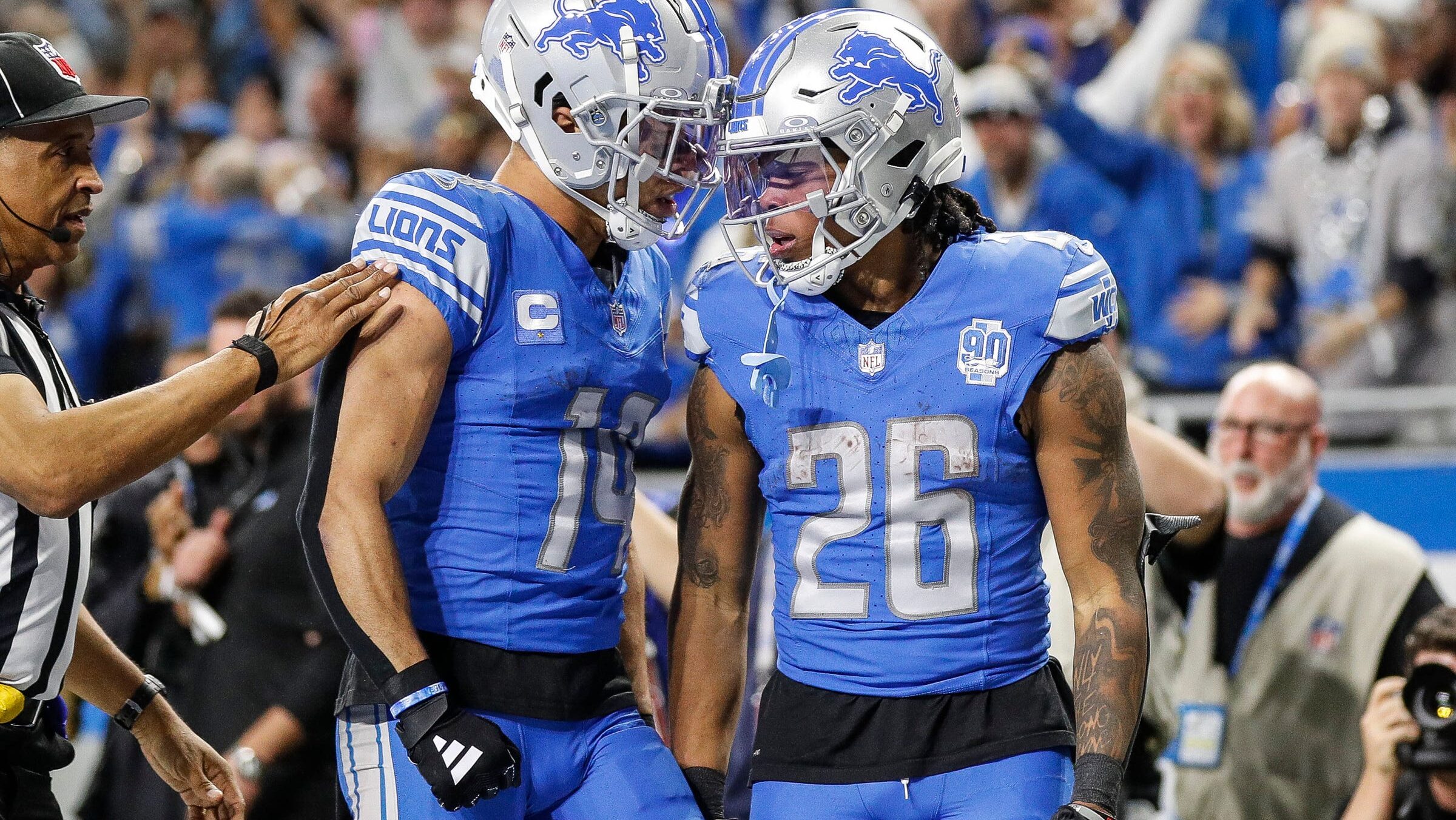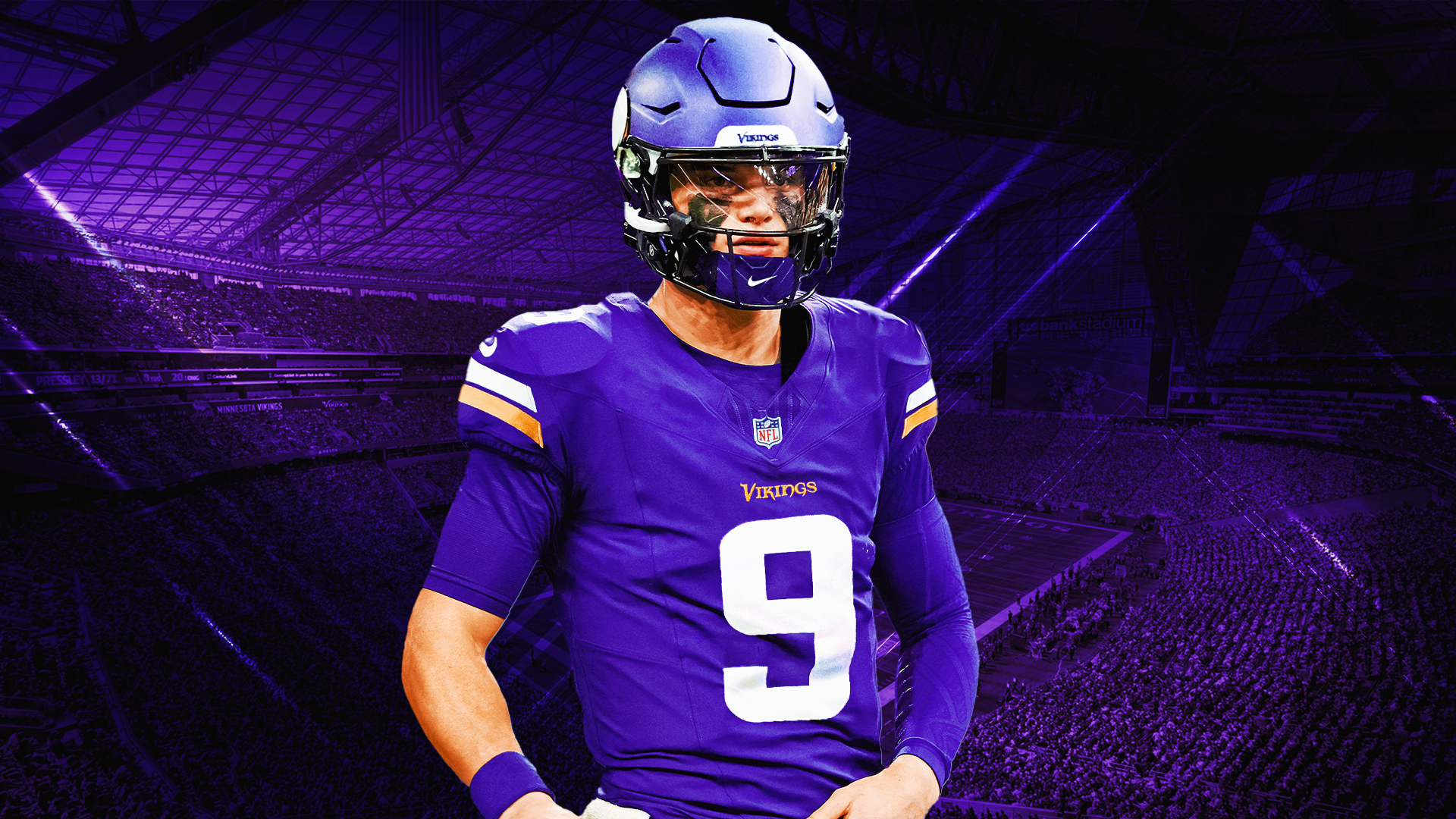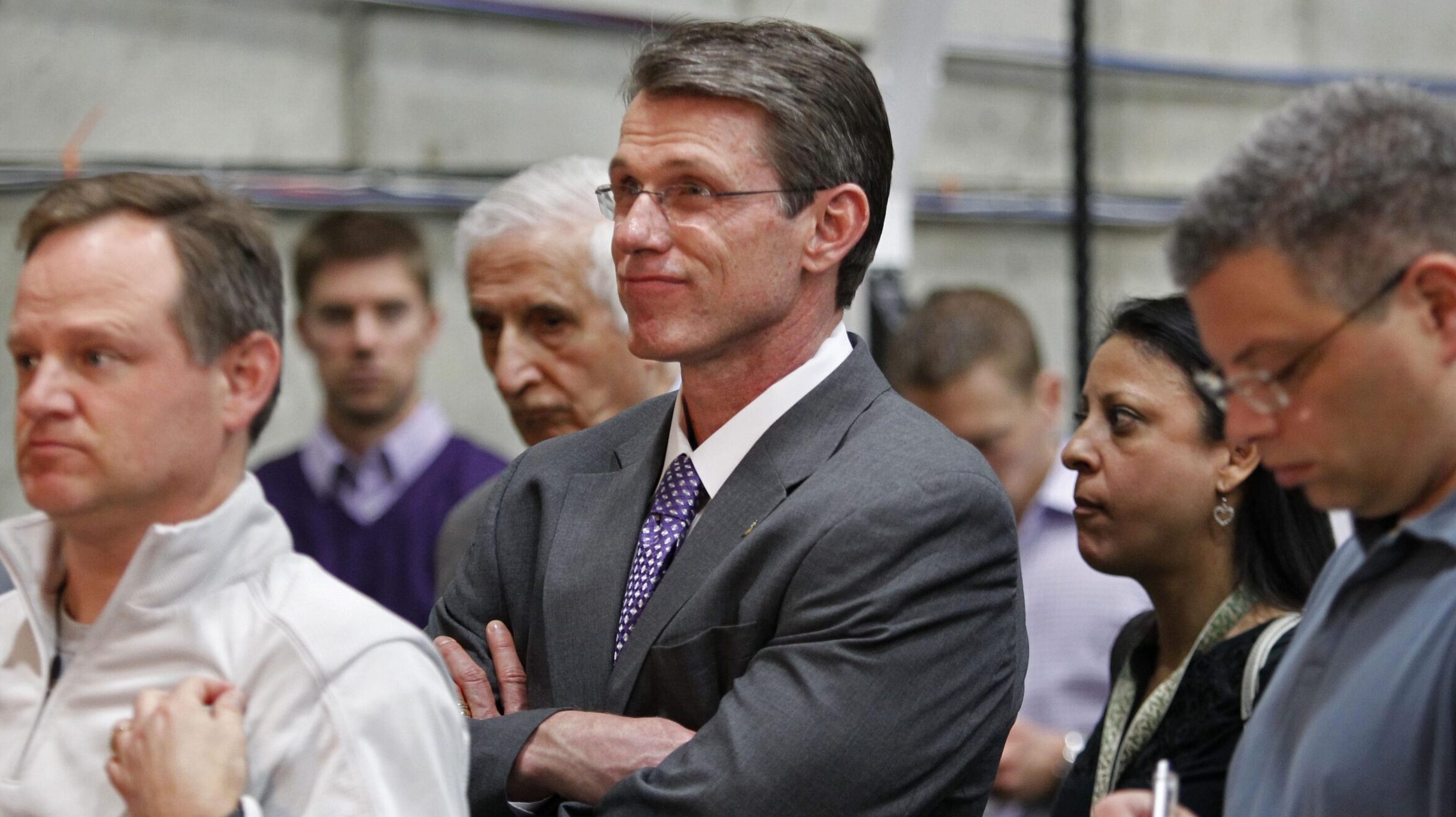Analysis
5/12/22
6 min read
Is Zach Wilson Set Up for Success with the Jets in Year 2?
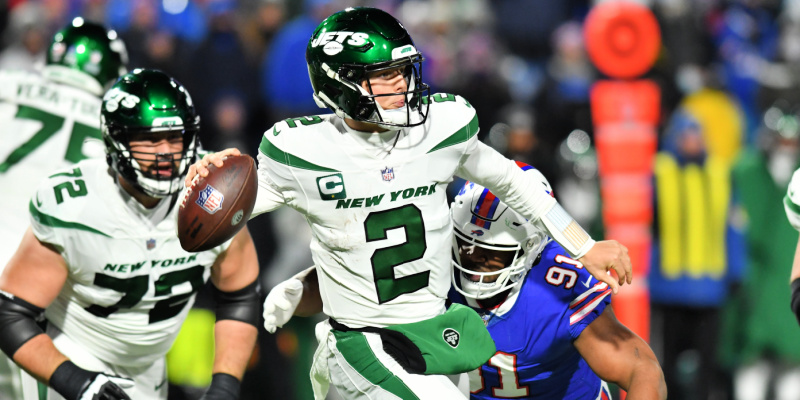
One of the defining storylines of the 2022 NFL season will unquestionably surround the development of the five quarterbacks selected in the first round of 2021, with Zach Wilson among a quintet that will each enter the year under varying degrees of pressure to prove themselves worthy of their lofty draft selection.
Save for Trey Lance with the San Francisco 49ers, Wilson, the second overall pick in 2021, is the quarterback under the most pressure to rise to the year-two challenge. The New York Jets allocated significant resources to giving him a supporting cast with which to engineer a 2022 leap.
However, using a lot of financial and draft capital to improve a roster is no guarantee of success. For all the praise they received after the draft, it remains to be seen if the moves the Jets made were the right ones, while there is considerable doubt over Wilson's ability to become a franchise quarterback.
So has the franchise done a good job of setting Wilson up to ascend in year two, and what do he and the Jets need to do to ensure 2022 is a season of tangible progress?
A slow start for Wilson
The overly simplistic answer to the second question for Wilson is: improve. And he will need to do that considerably. Wilson was statistically the least efficient quarterback in the NFL last season, finishing the year last in Football Outsiders' DYAR and DVOA metrics among qualifying quarterbacks. DYAR measures total value and DVOA gauges value per play.
Wilson was also last among qualifying quarterbacks in Expected Points Added per play and in Completion Percentage Over Expectation, completing 58.2 percent of his passes when expected to connect on 67.7.
Inefficient and inaccurate, the numbers suggest Wilson has a long way to go, and that is an assessment Joe Banner agrees with, the former Philadelphia Eagles president pointing to Wilson's struggles in processing quickly as a large concern.
"I'm not sold on Wilson. Both college tape and his rookie year showed some areas of quick processing that left me a little nervous," said Banner.
An inability to process expediently was reflected by Wilson's time to throw numbers.
According to the NFL's NextGen Stats, Wilson's average time from snap to throw was three seconds. Only two quarterbacks, Jameis Winston (3.02) and Jalen Hurts (3.12) took longer.
The Jets will hope the receiver they selected with the 10th overall pick can facilitate an improvement in Wilson's ability to read the field in 2022.
Wilson's namesake savior?
The Jets took Wilson's namesake, former Ohio State star Garrett Wilson, with the second of their three picks in the first round.
Extremely adept at creating separation with his route running, Garett Wilson generated the highest passer rating when targeted against man coverage (157.3) among FBS receivers last season.
Don’t cover Garrett Wilson 1-on-1 pic.twitter.com/PiT1IVT60y
— PFF (@PFF) March 2, 2022
His proficiency for getting open should theoretically help his quarterback process quickly and have more success on short to intermediate throws on which the former Buckeye can use his speed and elusiveness to create explosive plays after the catch.
With Elijah Moore entering his second season after an encouraging six-touchdown year as a rookie and Corey Davis serving as a ball-winner on the outside to complement Garrett Wilson, the Jets' receiving corps appears to be set up well to aid their signal-caller's development.
The Jets also emphasized the tight end position in the offseason, bringing in C.J. Uzomah and Tyler Conklin as free agents before drafting Jeremy Ruckert from Ohio State in the third round to give Zach Wilson several potential safety nets to aid him in the quick game.
Yet there remains a clear concern on the offensive side of the ball that could prohibit him from excelling in the area of the game that represented his strength both in college and in his first year as a pro.
Deep ball Wilson's strong suit
The most impressive aspect of Wilson's game during his college career at BYU was his deep ball accuracy, and he continued to excel going downfield in his first year in the pros.
While he only registered 32 completions of 20 yards or more – one fewer than Teddy Bridgewater and seven fewer than Ben Roethlisberger in a final season defined by his rapidly fading arm strength – Wilson was one of the most accurate quarterbacks in the NFL when pushing the ball downfield.
Indeed, per Johnny Kinsley's Deep Ball Project, Wilson was accurate on 55.17 percent of his pass attempts of 21 air yards or more, putting him ninth in the NFL.
Yet Wilson attempted just 29 such throws as a rookie, compared to 46 for fellow 2021 first-rounder Mac Jones, who lacks the elite arm to develop into a consistently proficient deep passer at the highest level.
If the Jets have designs on upping that number in 2022, then they did not really put themselves in a position to do so with their moves on the offensive line.
Banner said of their offseason acquisitions on offense: "I think they did a good job with weapons and as much as you can reasonably expect from year one to year two.
"I still have some concerns on the offensive line although it is better, and to me it's more important for his success than the weapons are."
The Becton question
The main concern up front surrounds 2020 first-round pick Mekhi Becton, the left tackle whose status remains up in the air after he played just one game in 2021 due to a knee injury.
It wasn't until the fourth round that the Jets selected a tackle in Louisiana's Max Mitchell and, if Becton cannot get back to football shape, the uncertainty at that spot could undermine their improvements on the interior and restrict New York's ability to give Wilson the time to do what he does best.
With an improved defense through the addition of first-round picks Sauce Gardner and Jermaine Johnson II and free-agent acquisitions like Jordan Whitehead, the selection of the top running back on The 33rd Team Big Board in Breece Hall, and an influx of passing-game weapons, the Jets have done plenty to give Wilson the chance to improve.
However, a potential deficiency at one of the most important non-quarterback positions in the game could derail things in a critical year for Joe Douglas and Robert Saleh.
Wilson must utilize his array of new weapons, predominantly his first-round receiver, to become a better processor and make strides as a quick-game thrower, while the Jets need to ensure they have a viable plan B at left tackle to help their quarterback deliver the explosive downfield throws for which he was renowned in college.
A failure to achieve either of those aims will lead to intense scrutiny on Douglas and Saleh and questions about another potential Jets misstep at quarterback.


